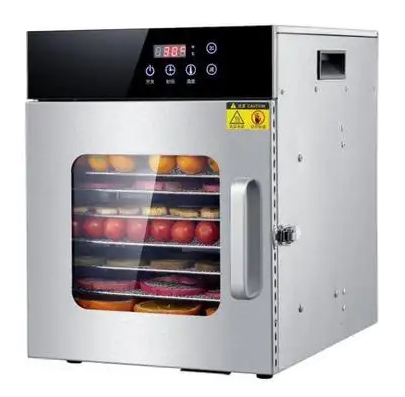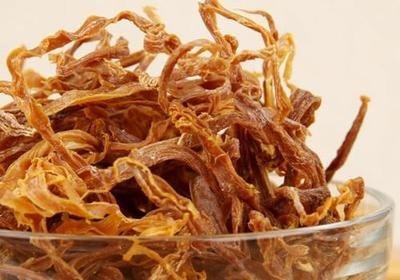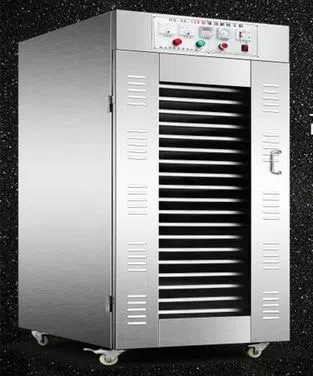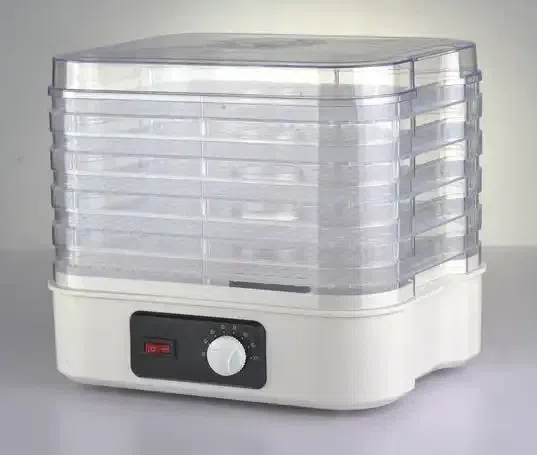
Content Menu
● Introduction
● What is a Heat Pump Dryer?
● Advantages of Heat Pump Dryers in Food Drying
>> Energy Efficiency and Cost Savings
>> Eco-Friendly Benefits
>> Versatility in Installation and Use
>> Low Maintenance Requirements
>> Enhanced Moisture Control
● The Food Drying Process
>> Freeze-Drying
>> Air Drying
>> Heat Pump Drying
● Applications of Heat Pump Dryers in the Food Industry
>> Commercial Food Production
>> Small-Scale Food Processors
>> Home Users
● Conclusion
● Frequently Asked Questions
>> 1. What types of food can be dried using heat pump dryers?
>> 2. How do heat pump dryers compare to traditional drying methods?
>> 3. Are heat pump dryers suitable for home use?
>> 4. What maintenance is required for heat pump dryers?
>> 5. Can heat pump dryers help reduce food waste?
Introduction
Food preservation has been a crucial aspect of human survival and culinary practices for centuries. Among various methods, drying is one of the oldest and most effective techniques, allowing food to be stored for extended periods without spoilage. In recent years, heat pump dryers have emerged as a revolutionary technology in the food drying industry, offering numerous advantages over traditional methods. This article explores the role of heat pump dryers in food drying, highlighting their benefits, applications, and the overall drying process.

What is a Heat Pump Dryer?
A heat pump dryer is an advanced drying appliance that utilizes a closed-loop system to remove moisture from food products. Unlike traditional dryers that expel hot air outside, heat pump dryers recycle the air within the system, making them highly energy-efficient. The process involves drawing in ambient air, heating it, and passing it over the food to evaporate moisture. The moisture-laden air is then condensed back into water, which is collected and drained away, while the dry air is recirculated.
Advantages of Heat Pump Dryers in Food Drying
Heat pump dryers offer several advantages that make them particularly suitable for food drying:
Energy Efficiency and Cost Savings
Heat pump dryers consume significantly less energy compared to conventional dryers. By recycling hot air, they reduce energy costs, making them a cost-effective solution for both commercial and home users.
Eco-Friendly Benefits
These dryers have a lower carbon footprint due to their energy-efficient operation. They contribute to environmental sustainability by reducing greenhouse gas emissions associated with energy consumption.
Versatility in Installation and Use
Heat pump dryers can be installed in various locations without the need for external venting. This flexibility makes them ideal for small spaces and diverse applications in the food industry.
Low Maintenance Requirements
With fewer moving parts and no need for venting, heat pump dryers require minimal maintenance. Regular cleaning of filters and ensuring proper drainage are typically sufficient to keep them running efficiently.

Enhanced Moisture Control
The ability to control temperature and humidity levels allows for precise drying, preserving the quality, flavor, and nutritional value of the food.
The Food Drying Process
The food drying process involves several stages, each critical to achieving optimal results. Initially, food is prepared by washing, cutting, and sometimes blanching to enhance flavor and texture. The drying process can be categorized into different methods:
Freeze-Drying
This method involves freezing the food and then reducing the surrounding pressure to allow the frozen water in the food to sublimate directly from ice to vapor. Heat pump dryers can facilitate this process by maintaining low temperatures and controlled humidity.
Air Drying
This traditional method relies on natural airflow to remove moisture. While effective, it can be time-consuming and less reliable in terms of food quality.
Heat Pump Drying
This method combines the benefits of controlled temperature and humidity, making it one of the most efficient ways to dry food. Heat pump dryers can maintain optimal conditions throughout the drying cycle, ensuring consistent results.
Applications of Heat Pump Dryers in the Food Industry
Heat pump dryers are increasingly being adopted in various sectors of the food industry:
Commercial Food Production
Large-scale food manufacturers utilize heat pump dryers to produce dried fruits, vegetables, and herbs, ensuring high quality and extended shelf life.
Small-Scale Food Processors
Artisanal producers and small businesses benefit from the versatility and efficiency of heat pump dryers, allowing them to create high-quality dried products without significant investment.
Home Users
With the growing trend of home food preservation, heat pump dryers are becoming popular among home cooks and enthusiasts. Their compact design and ease of use make them accessible for personal use.
Conclusion
Heat pump dryers represent a significant advancement in food drying technology, offering numerous benefits that enhance the quality and efficiency of the drying process. Their energy efficiency, eco-friendliness, and versatility make them an ideal choice for both commercial and home applications. As the demand for high-quality dried foods continues to rise, heat pump dryers are poised to play a crucial role in the future of food preservation.

Frequently Asked Questions
1. What types of food can be dried using heat pump dryers?
Heat pump dryers can effectively dry fruits, vegetables, herbs, and meats, preserving their nutritional value and flavor.
2. How do heat pump dryers compare to traditional drying methods?
Heat pump dryers are more energy-efficient and provide better moisture control, resulting in higher quality dried products.
3. Are heat pump dryers suitable for home use?
Yes, they are compact and can be installed in various locations, making them ideal for home kitchens.
4. What maintenance is required for heat pump dryers?
They require minimal maintenance, mainly cleaning the filters and ensuring proper drainage of condensed water.
5. Can heat pump dryers help reduce food waste?
By effectively drying food, they extend shelf life and reduce spoilage, contributing to less food waste.












